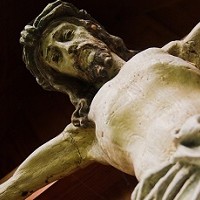God’s idea of patriarchy is His being our Father in heaven and we are His children.
So why do men and women fight as siblings? We fight because we are more concerned with power, authority, and being right for our own pride’s sake. But this raises all sorts of inappropriate questions:
- Is God a misogynist?

- Does He hate women but love men?
- Does all power belong to men because there is something special about Adam’s having been created first?
- Do we assume Eve’s being created second is actually understood to be second rate, second fiddle, or second best?
- Is headship in marriage unfair and wrong?
- Should the pastorate be exclusively the right of men?
- Should women be allowed to exercise leadership or use gifts of shepherding or preaching?
We fight over power and authority—an insidious human problem (indeed idolatry!) that we will find at the root of every wrong understanding of the beautiful biblical idea called patriarchy or headship.
We cannot confuse human patriarchy with God’s patriarchy. We cannot conflate marital headship with male headship. Those exchanges both make assumptions that the Bible itself does not make. You’d never know that given the sheer volume of writings making that very error. Adam and Eve were not simply first man and first woman. They were also first husband and first wife (even if not every male or female since that time would find identity in the institution of marriage).
Biblical headship anticipates the Fall of Man. 
Because God is outside of time, He created us knowing ahead of time that the cost of our disobedience in the Garden of Eden would be Jesus’ death. If Jesus was the Lamb of God before the creation of the world (Revelation 13:8) and if His sacrificial death as atonement was not some Plan B, then headship at creation was given for the purpose of redemption.
As we read in 1 Corinthians 15:22 “For as in Adam all die, so in Christ all will be made alive.”
Let me say it a different way.
It was necessary that Adam and Eve were not separate beings–created separately from the ground– because we all need to come from Adam in order for any to be redeemed in Christ.
This is why Eve had to come from Adam, not to give him someone to rule over in headship. Marriage came after creation (Genesis 2:24).
Let’s look at headship defined as “necessary for redemption” and original to the created order. Adam recognized that Eve was his suitable life partner, “bone of my bones, flesh of my flesh.” Adam and Eve were blessed by God with the same blessing to be fertile and multiply the image of God over the face of the earth, to rule creation, and to subdue the earth. Extending the rule and reign of God was the blessing of His headship over two created human individuals—separate, yet one flesh—and God’s way of fulfilling the five-fold blessing.
Yet headship anticipated a time beyond the blessing. It was given with the important future understanding of redemption from a fallen state. This is the beauty of God’s design of patriarchy! As our Father in heaven, He anticipated how we could live in the blessing in spite of brokenness that Adam and Eve would bring about in earthly time after their creation.
Headship defined as ruling over each other is first mentioned as a consequence of the Fall. When we ask the wrong question “Is Patriarchy God’s Design for Women?,” we act as though the Fall happened before the seventh day, the day of Sabbath rest, and as if Genesis 3 happened in Genesis 1 or 2. We want to extend brokenness to the created order when in belongs squarely in the Fall.
Notice from this time forward in future tense, Genesis 3:16 reads (italics added for emphasis),
To the woman he said, ‘I will greatly increase your pains in childbearing; with pain you will give birth to children. Your desire will be for your husband, and he will rule over you.’”
Boom. God said it, I didn’t.
Now, there are those beholden to a more extreme Complementarian view, people who interpret events like Adam’s naming animals and recognizing Eve as being taken out of Adam as Adam’s ruling over Eve.  But God never said that was what He meant. People devote a lot of ink to writing between the lines of Scripture and this has been a cause of division and controversy ever since. Don’t we see how this is wrong, setting aside what God says for a power that any man might covet?
But God never said that was what He meant. People devote a lot of ink to writing between the lines of Scripture and this has been a cause of division and controversy ever since. Don’t we see how this is wrong, setting aside what God says for a power that any man might covet?
Those in the extreme Complementarian camp desire male headship so much that they fail to see how their view falls apart in eternity. It falls apart because God didn’t say it and therefore, it won’t last. If this hierarchical ruling over was a lasting ordinance because of creation and not from the Fall of Man, we’d see it explained as an eternal reality. But it’s not there.
Instead, what does the Bible say? It says,
- We are like the angels in heaven as our eternal reality– Jesus replied, “You are in error because you do not know the Scriptures or the power of God. At the resurrection people will neither marry nor be given in marriage; they will be like the angels in heaven” (Matthew 22:29-30).
- We are children of God, now and forever—“Yet to all who received him, to those who believed in his name, he gave the right to become children of God– children born not of natural descent, nor of human decision or a husband’s will, but born of God” (John 1:12-13).
- We have one Father, eternally— “Have we not all one Father? Did not one God create us? Why do we profane the covenant of our fathers by breaking faith with one another?” (Malachi 2:10); “Jesus said, ‘Do not hold on to me, for I have not yet returned to the Father. Go instead to my brothers and tell them, “I am returning to my Father and your Father, to my God and your God.”'” (John 20:17).
- We are equally purchased by the blood of the Lamb to be a “kingdom and priests”—all of us—to serve our God without any indication of hierarchy (Revelation 5:10).
- We are people of faith without divisions. “He who was seated on the throne said, ‘I am making everything new!’ Then he said, ‘Write this down, for these words are trustworthy and true.’ He said to me: ‘It is done. I am the Alpha and the Omega, the Beginning and the End. To him who is thirsty I will give to drink without cost from the spring of the water of life. He who overcomes will inherit all this, and I will be his God and he will be my son’” (Revelation 21:5-7).
- The kingdom belongs to all people and we will all worship Jesus. “Then the sovereignty, power and greatness of the kingdoms under the whole heaven will be handed over to the saints, the people of the Most High. His kingdom will be an everlasting kingdom, and all rulers will worship and obey him” (Daniel 7:27).
The idea of male hierarchy in heaven is heresy.
That kind of divisive desire for power is idolatry.
It is wrong to the core and pierces Christ, the only mediator we have or need, now or in the future.
Now some of you may be thinking that I’m extrapolating headship from earth to heaven and that’s not what you’re intending by saying that male headship as ruling over exists on earth since creation. In answer, I’d respond that God’s original design for creation was perfect. His works are perfect; His ways are perfect; His knowledge is perfect; He is perfect in and of Himself; in Christ, we will be presented in perfect unity; and we will have been made perfect, just as He is perfect.
If male headship (all men ruling over all women) was God’s perfect plan from all creation to endure beyond redemption, we’d see it in heaven. But we don’t.
We must acknowledge that if headship meaning ruling over has been redeemed in the last day, then it wasn’t perfect to begin with. We cannot conflate our existing in the first man Adam (as God’s anticipated redemptive necessity) with male headship beyond marriage (which was the specific relationship Adam had with Eve).
I readily admit that headship in marriage is found in Adam’s being created first. But its meaning of ruling over was a clear, stated consequence of the Fall. That is why a woman is bound to her husband only as long as he lives (1 Corinthians 7:39). The fact that death (a consequence of the Fall) separates the marriage including its hierarchy speaks to the Fall’s impact.
This is why male headship over any women beyond the wife of the man doesn’t automatically follow. The “one flesh” of marriage—based in creation—cannot be extrapolated to all women because no man is married to all women.
So to make this personal, I am not under the headship of other men in the same way that I am under the headship of my husband. He is not head of other women in the way he is head over me. Redemption reigns and we are new creations. The headship he is supposed to model with me is elevated above the Fall and is illuminated by redemption as Scripture says. My husband is to love me as Christ loved the Church (Ephesians 5:25). That’s the view from redemption. The submission I am supposed to model is to be elevated beyond a consequential desire for my husband and subject to his ruling over me; I am to submit to my husband as unto the Lord (Ephesians 5:22). It’s what the Bible says, considering both the Fall and redemption. My relationship with other men—as my husband’s relationship with other women—is to submit to one another out of reverence for Christ (Ephesians 5:21). That’s in the Bible too and is not solely focused on creation, but takes into account eternity’s picture of all the redeemed men and women as brothers and sisters, children of God.
Is patriarchy God’s design or dream for the world? That’s asking the wrong question. The right question is “What is the purpose of patriarchy?”
God’s original intention was that we have one Patriarch: One Father in heaven. That’s what creation established and it lasts for all eternity.
Yet, patriarchy serves also a redemptive human purpose. It was anticipated at creation, knowing our need for redemption. Any human purpose—a present-day ruling over—exists to provide order within marriage, but only until death dissolves the marriage. If either headship or marriage existed beyond redemption, we’d see it in heaven.
So just as the Law served to point to our need for a Savior, so human headship points to a better patriarch than one any man in Adam’s image could provide. It points to Jesus Christ–the Son of Man, the Son of God–who was the only one who could provide redemption for a fallen world.
It explains why the Father in heaven is Jesus’ Father and ours, yet in completely different ways. Patriarchy is important to Jesus and it exists eternally with one God as our Father in heaven. We need not bristle at patriarchy or submission to our Father in heaven when we ask the right questions.